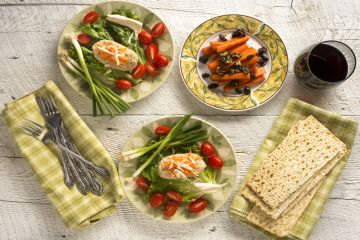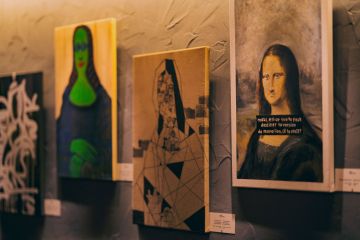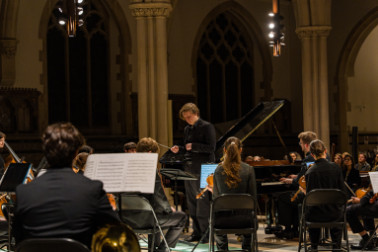Slavic Shrovetide: Pagan Traditions
The holiday came to us from the ancient times and truly its ritual component is rather multifaceted and complex. The custom is based on an idea of the beginning of a new year, a new cycle. Hence, there is another side to it – the inducement of fertility in nature. No less significant are some elements of the ancient Slavs cult, still preserved in the rites of the carnival.For most traditional religions, the relation between a new year and the rituals is dedicated to the creation of the world, renewal of the universe and abandonment of the past. Thus, destruction of the old and the stimulation of regeneration and fertility are transmitted by many details in the carnival rites. These include, for instance, burning garbage and stuffed Pancake week. An important part in this concept is given to the memorial component of the carnival: it was believed that the dead, occupying both our realm and the Other world, could influence the fertility of the earth. Hence the special, honourable attitude to the ancestors and a lot of funeral rites.History of the carnival celebrationOne of the most ancient Slavic folk festivals preserved till nowadays, Shrovetide or Maslenitsa is a rite dedicated to sending off winter and joyful greeting of spring. In fact, until the 15th century it was considered a New Year meeting, held at the beginning of spring (March 1 or March 23). Different regions have their own special rituals, however, the concept of the rite was the same. Needless to say that today's celebration concept is very different from the original traditions. Nowadays, the rite is mostly focused on entertaining: crowds of guests, the fair, dancing, bonfires and, of course, a huge quantity of traditional pancakes.Before Christianity was adopted, people who lived on the territory of modern Russia were pagans worshiping the god of Sun — Jarilo. According to some sources, he was a ritual character who personified spring fertility and sexual power. Even then it was customary to make pancakes, as a symbol of the Sun and an expression of gratitude to Jarilo for giving life on the Earth. Later, until the XVII century, carnival was constantly condemned and considered demonic by the Orthodox Church. However, in the XVIII century the persecutions weakened, promoted by the Tsar's people who celebrated the holiday in a big way, and very soon this truly Russian rite was adopted by the church and regulated to fit its interests.To date, the carnival is considered to be an Orthodox, and not a pagan, holiday cycle. In the Orthodox calendar, this cycle serves the purpose of preparation for the Great Lent, known for its rigour and duration.Origin of the rite nameActually, there is no single opinion as to the origin of the name of this festive cycle. The most common version is that the word "maslenitsa" has a gastronomic root from the Russian word "maslo", which means "butter". Spring, especially March, is a season when house is full of dairy products: milk, cheese and butter. The latter served as a symbol of prosperity in the family, while a round hot pancake was the personification of the Sun. Those were obligatory attributes in the ritual of "seduction" of the deity — after all, the fertility of the earth depended directly on the Sun.There is an opinion that the carnival's roots are even deeper, and initially the rite was dedicated to the Slavic god of cattle — Veles. Another version of holiday's name origin is based on the assumption that meat was excluded from the diet during the Shrovetide week, but dairy products (cheese, butter, cottage cheese, etc.) were allowed to be consumed, and butter pancakes were largely popular. By the way, that's where the second name of the holiday — Cheese Week — comes from.For the sake of justice, we will recall one more legend. It is believed that the birthplace of the holiday is the far North. Once, on a severe winter day, people exhausted from frost noticed Maslenitsa — the daughter of Frost, hiding behind snowdrifts. They called her to warm and cheer them up, as well as to help survive the cold. Maslenitsa came to people, but she was not a little girl as it seemed from where she was hiding, but a healthy, strong woman: her cheeks were ruddy and fat from butter, her eyes were sly, and laughter insidious. The daughter of Frost drew people in the dancing, thus warming them, and let them forget about the cold. The fun tradition still exists nowadays: every year Maslenitsa escorts Russian people to the cold and brings in the celebration of spring.Customs of the Shrovetide DaysShrovetide is an ancient custom, which got mixed with a lot of rules, rituals, and celebration elements over time. The exact list of the rules would probably make up another article, so let's dwell on the key ones still relevant today. During the Shrovetide Days, meat is not allowed, but dairy products and fish are not excluded from the diet. The main treat of the week is pancakes. They are made during the week, from Thursday to Sunday especially in large quantities. The special feature of the festive cycle is to eat as much as the soul desires. Numerous legends proof that the number of meals could be boldly equated with the number of the dog's tail strokes, or the sum of crows craws. Hosting guests and gluttony are indispensable components of the week.Mass festivities is another significant part of the festive cycle. Round dance, singing, Shrovetide riding in a horse sleigh, amusing battles, burning bonfires are just a part of what people do at the fairs, where motley crowds rejoice in the approach of warmth. Ages ago, huge festivals and their elements, especially horseback riding, were of the great importance for youngsters and girls who wanted to attract each other's attention. The whole Cheese Week is about food and fun, while business is delayed for later. As the Slavs say — The Great Lent will come, and so will the concerns.Newlyweds who married last year are given the special attention during this holiday: they are put in amusing trials, often full of embarrassing situations, and are visited without an invitation. On Sunday, which marks the end of the Cheese Week festival, it is common to ask forgiveness of close people and relatives. First, the younger generation asks forgiveness of the elders of the clan, then it's the elders turn to do the same. Besides, forgiveness is asked of the dead by visiting cemeteries and leaving pancakes on the graves of the closest people.Shrovetide folk traditionsSpeaking of the family traditions, the theme of love and marriage is heavily reflected in a variety of customs. For example, during the carnival young married couples were subjected to various amusing trials: they arranged show-offs, laid in the snow, were forced to kiss people, showered them with straw or bast shoes, and even arranged a "tavern" when guests could kiss their young wife. Youngsters and girls who did not marry during the past year underwent "punishments" in the form of various test rites. A fair is a very honourable and ancient tradition when people arranged a treat at home and visited each other. Besides, all sorts of pickles, pies, pancakes and other delicacies were sold on the streets of the villages and cities. The fun atmosphere reigned as the buffoons entertained the crowd, and both adults and children were busy on the ice slides.Nowadays fairs are held with the same grandeur: folk festivals, concerts, and, of course, pancakes and tea from a samovar are an integral part of many modern fair. The audience is entertained not only by professional artists but also amateur citizens. On Forgiven Sunday, folk craftsmen present their work, much of it can be bought as souvenirs. Naturally, it's better to see once than to hear about it a thousand times — welcome to Ukraine with its sincere and old spirit of the Slavic culture.







